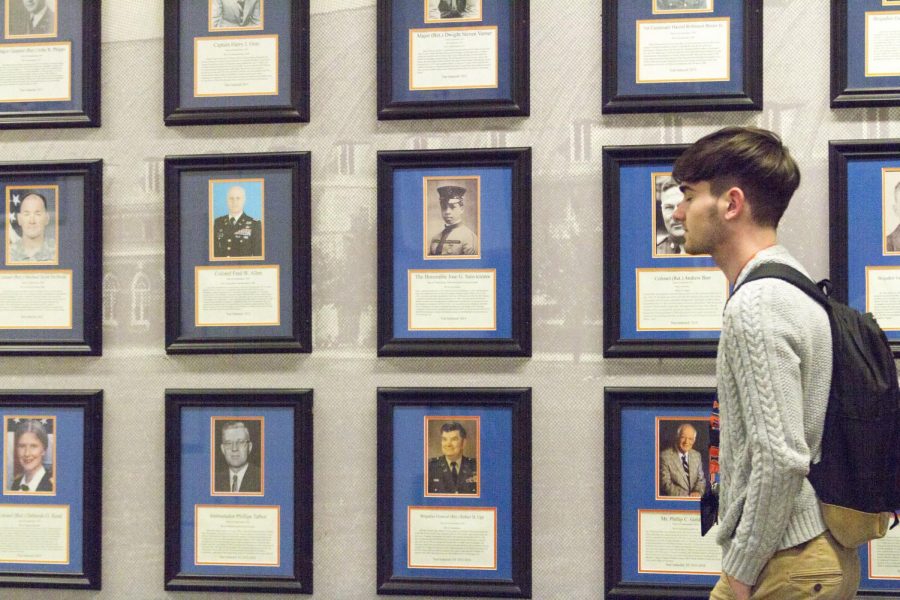Study explores how stigma against veterans impedes mental health treatment
Student Colin Hec walks past photos of veterans on wall in Armory. Two University studies aim to explain mental health stigma.
Mar 29, 2018
Last updated on April 2, 2018 at 10:43 a.m.
Two ongoing studies spearheaded by the Transforming Trauma and Mental Health Research Laboratory are seeking to understand how veterans make decisions regarding their mental health and how those who interact with veterans perceive and understand veterans’ issues.
Assistant professor in the Department of Kinesiology and Community Health, Robyn Gobin, is the research head of the two studies.
The first study aims to assess the effect of online tools on veterans’ treatment-seeking behavior, mental health stigma and mental health literacy, Gobin said.
Mental health literacy is defined as a person’s understanding of mental illnesses, the symptoms and how to get help, Gobin said.
Get The Daily Illini in your inbox!
Veterans are asked to come into the Chez Center for Wounded Veterans in Urbana and are randomly assigned to a mental health tool. They are then asked a series of questions before and after engaging with the resource.
The researchers follow up with the participants one month later, then again three months later to see how the tool may have affected their behaviors in seeking treatment.
Gobin said she and her research team are interested in the student-veteran perspective for this study and are seeking students at the University to participate, in order to strike a balance between community member participants and student participants. Right now, community member participants outnumber student participants.
The second ongoing study is concerned with how the people who interact with veterans at work, in school and at home perceive veterans’ issues. Participants are randomized into one of two three-hour long workshops that help them better understand veterans. Participants then answer a questionnaire afterwards about their experiences.
Since the questionnaires are online, Gobin hopes this makes them more easily accessible for participants. She also hopes the results of the study can break down barriers that veterans face in receiving mental health treatment.
According to a study published by the Oxford University Press, approximately 60 percent of military personnel who experience mental health problems do not seek help.
Gobin said veterans are often stigmatized by those around them, and this study seeks to discover why this happens and how those stigmas can be transformed.
Veterans also face issues within the military, which tends to govern what is acceptable behavior and what is not. If a veteran shows a sign of weakness, this can clash with our perception of them as a hero, she said.
“(They) are required to put their emotional self to the side,” she said. “We have this perception that veterans are brave and strong, which is true, but they are also human.”






